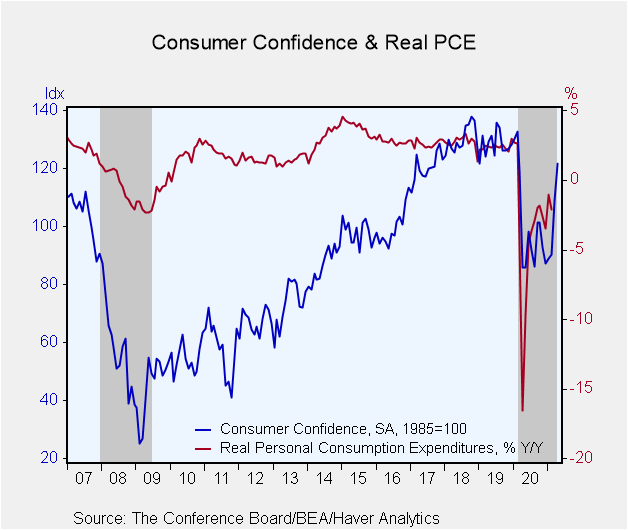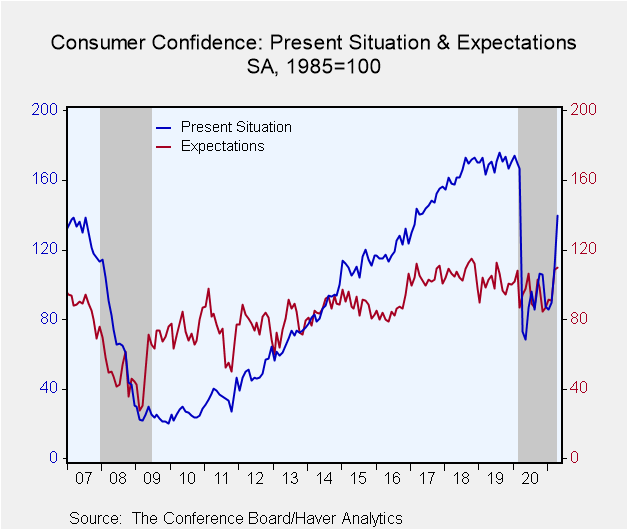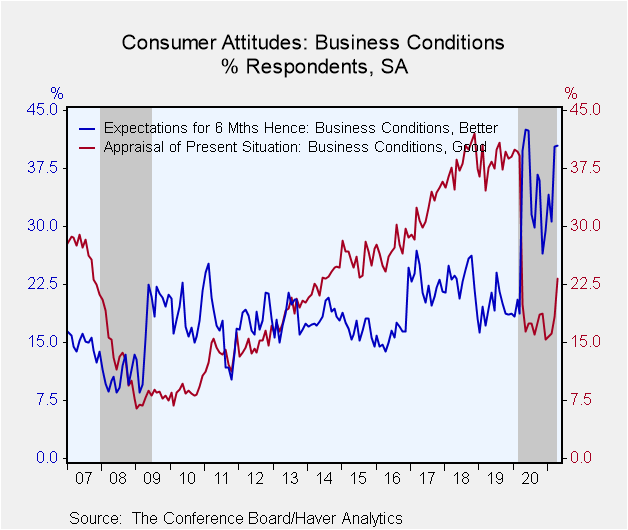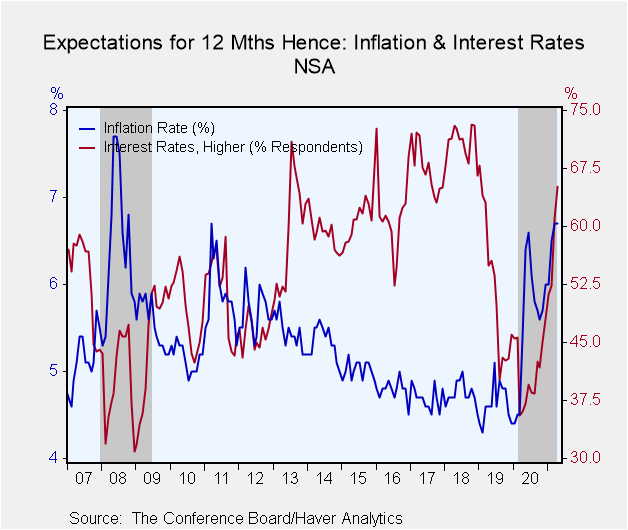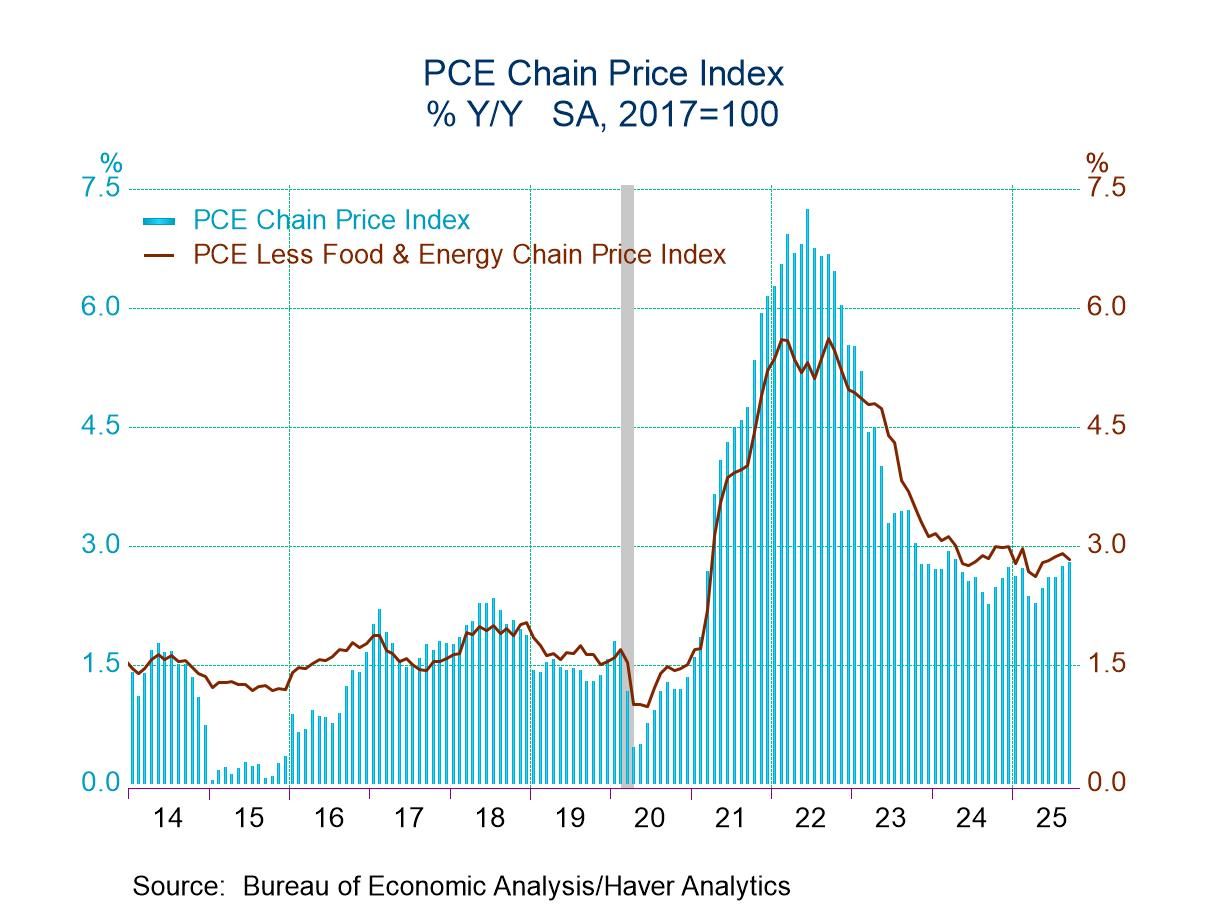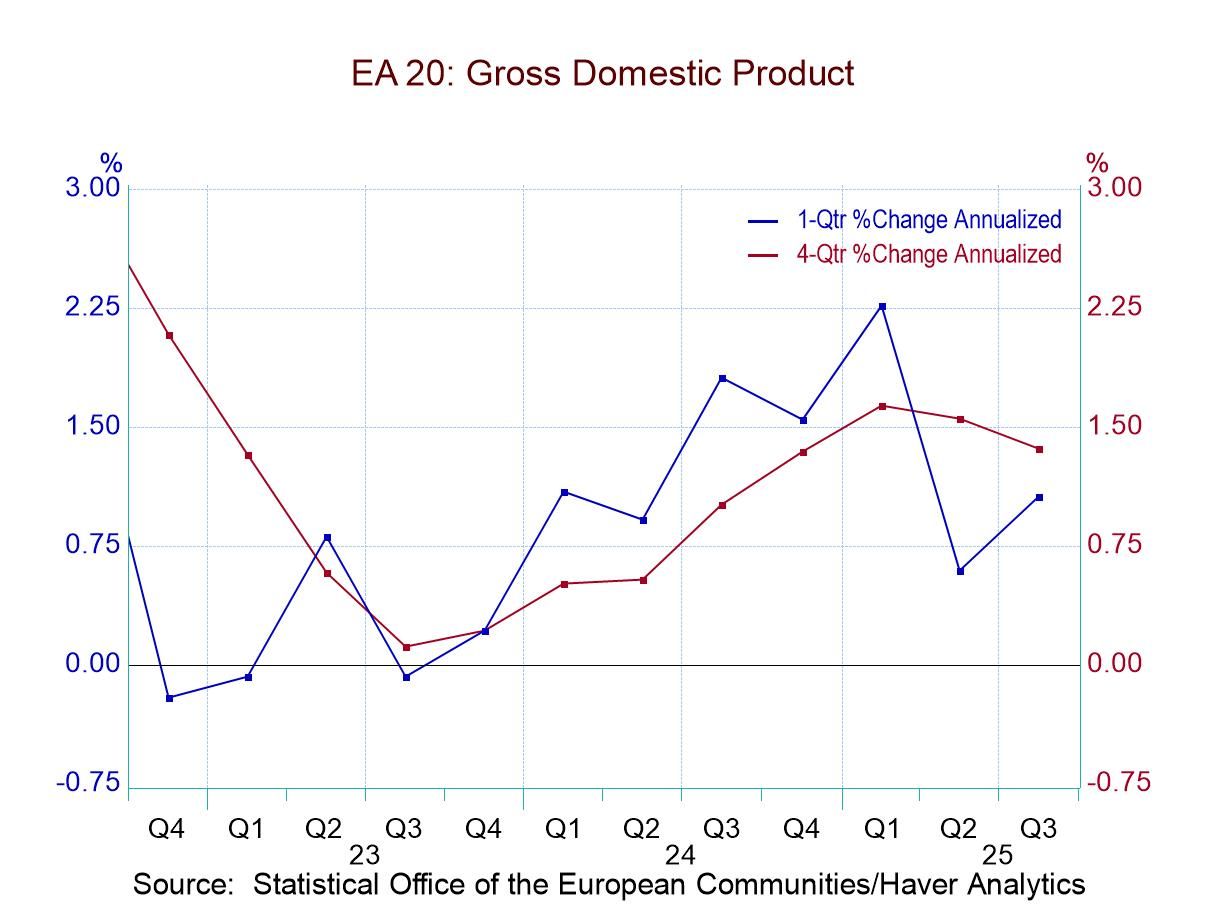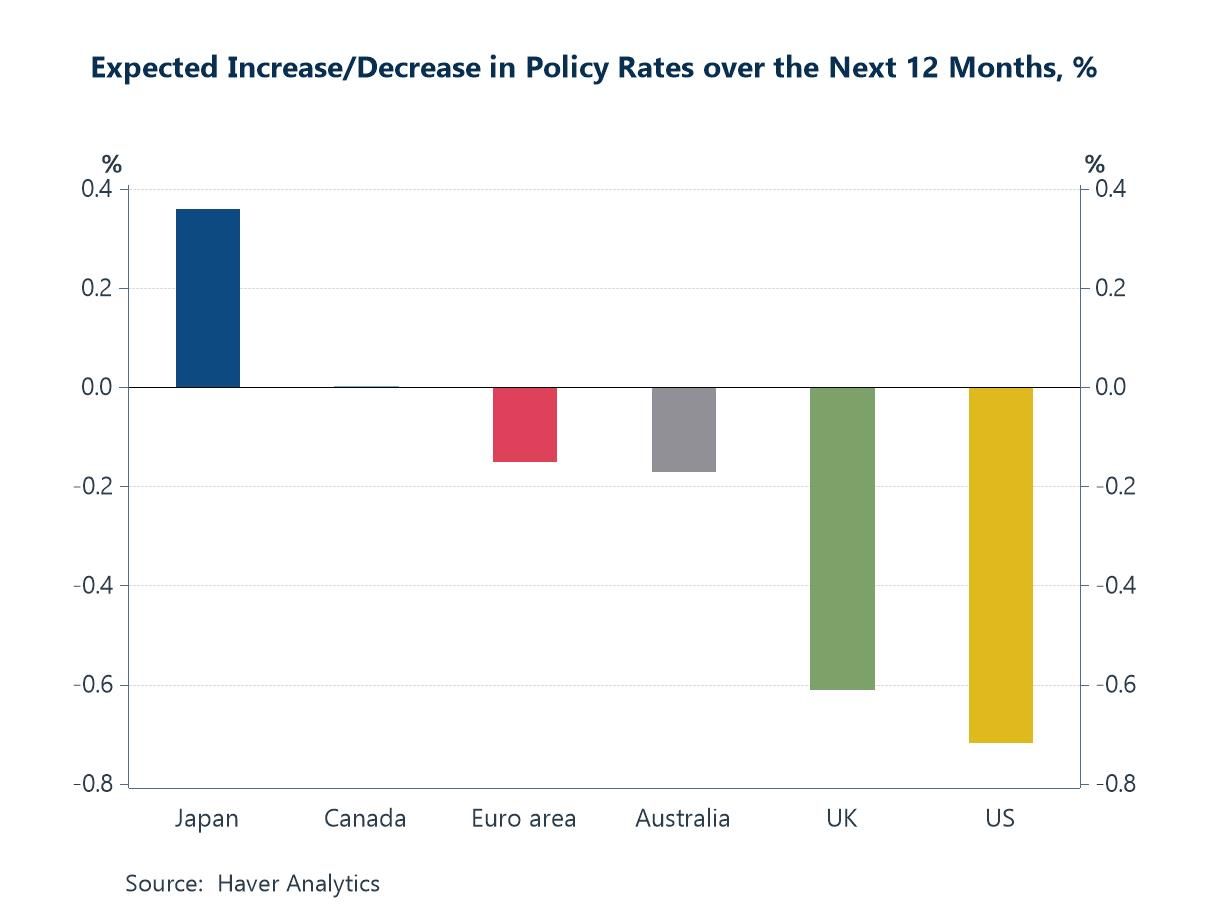 Global| Apr 27 2021
Global| Apr 27 2021U.S. Consumer Confidence Strengthens During April
by:Tom Moeller
|in:Economy in Brief
Summary
• COVID-19 shots & stimulus checks lift confidence to 14-month high. • Improvement in current conditions reading outpaces expectations increase. • Job market indexes continue to strengthen. Consumers are growing more confident in [...]
• COVID-19 shots & stimulus checks lift confidence to 14-month high.
• Improvement in current conditions reading outpaces expectations increase.
• Job market indexes continue to strengthen.
Consumers are growing more confident in economic conditions. The Conference Board Consumer Confidence Index improved 11.7% (42.0% y/y) to 121.7 during April after strengthening 20.6% to 109.0 during March, revised from 109.7. It was the highest reading since February of 2020, and up from the April 2020 low of 85.7. The increase outpaced expectations for a moderate rise to 112.0 in the Action Economics Forecast Survey.
Leading the increase was a 26.8% strengthening (91.2% y/y) in the Present Situation index to 139.6, which increased 22.9% in March. It was the highest since March 2020, although its peak of 176.0 was reached in August of 2019. The Consumer Expectations reading improved 1.4% (16.4% y/y) this month to 109.8, the highest level since July 2019.
The jobs gap, representing the difference between respondents indicating that jobs are plentiful and those saying jobs are hard to get, surged to 24.7% from 8.0%. It suggested great improvement in the job market, although it has not yet reached pre-pandemic levels. This series has had a 75% correlation with the unemployment rate over the last ten years. The rise last month in the labor market differential occurred as the jobs plentiful measure rose sharply to the highest level in 13 months, while the jobs hard-to-get index fell to the lowest level since January of last year.
Business conditions were perceived as good by an improved 23.3% of respondents, up from 18.3% in March. Expectations that business conditions would improve in six months were little changed at 40.5%, remaining at the highest level in ten months. More jobs were expected in six months by a slightly lessened 34.5% of respondents, down from 35.9% in March. The percentage expecting income to increase rose sharply to 17.9%, about the same as twelve months earlier.
The expected inflation rate in twelve months held steady at 6.7%, but was increased from 5.4% twelve months ago. The share of respondents planning to buy a new home held steady at 2.4%, which came after a jump from 1.0% in February. Those planning to buy a major appliance fell to 49.8% and reversed the March increase to 53.6%.
Confidence of individuals in all age brackets improved sharply to roughly twelve-month highs.
The Consumer Confidence data are available in Haver's CBDB database. The total indexes, which are indexed to 1985=100, appear in USECON, and the market expectations are in AS1REPNA.
| Conference Board (SA, 1985=100) | Apr | Mar | Feb | Apr '20 | 2020 | 2019 | 2018 |
|---|---|---|---|---|---|---|---|
| Consumer Confidence Index | 121.7 | 109.0 | 90.4 | 85.7 | 101.0 | 128.3 | 130.1 |
| Present Situation | 139.6 | 110.1 | 89.6 | 73.0 | 109.8 | 169.8 | 164.8 |
| Expectations | 109.8 | 108.3 | 90.9 | 94.3 | 95.2 | 100.6 | 107.0 |
| Jobs Gap (%) | 24.7 | 8.0 | -0.8 | -15.7 | 6.8 | 33.2 | 27.6 |
| Jobs Plentiful (%) | 37.9 | 26.5 | 21.6 | 18.8 | 27.8 | 45.8 | 42.0 |
| Jobs Hard to Get (%) | 13.2 | 18.5 | 22.4 | 34.5 | 21.0 | 12.6 | 14.4 |
Tom Moeller
AuthorMore in Author Profile »Prior to joining Haver Analytics in 2000, Mr. Moeller worked as the Economist at Chancellor Capital Management from 1985 to 1999. There, he developed comprehensive economic forecasts and interpreted economic data for equity and fixed income portfolio managers. Also at Chancellor, Mr. Moeller worked as an equity analyst and was responsible for researching and rating companies in the economically sensitive automobile and housing industries for investment in Chancellor’s equity portfolio. Prior to joining Chancellor, Mr. Moeller was an Economist at Citibank from 1979 to 1984. He also analyzed pricing behavior in the metals industry for the Council on Wage and Price Stability in Washington, D.C. In 1999, Mr. Moeller received the award for most accurate forecast from the Forecasters' Club of New York. From 1990 to 1992 he was President of the New York Association for Business Economists. Mr. Moeller earned an M.B.A. in Finance from Fordham University, where he graduated in 1987. He holds a Bachelor of Arts in Economics from George Washington University.


